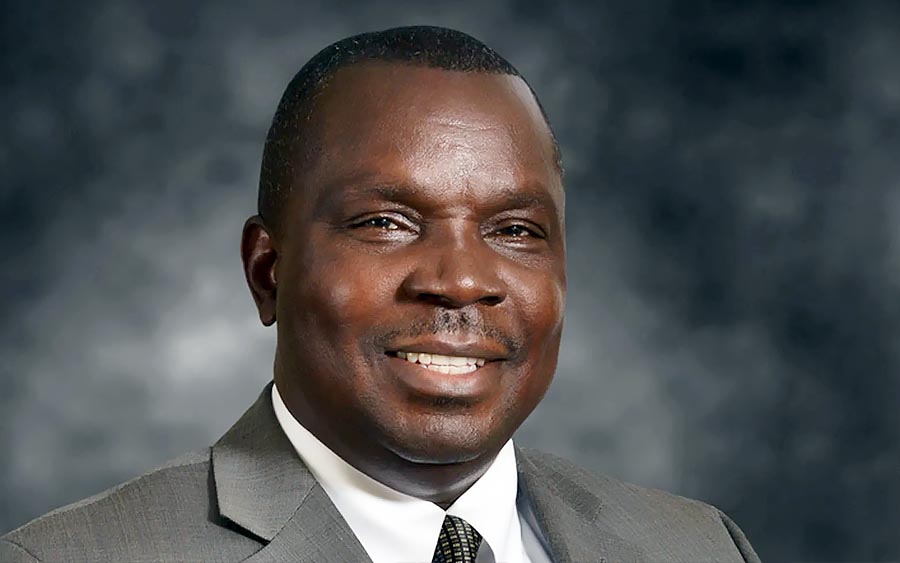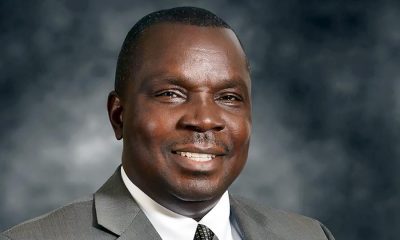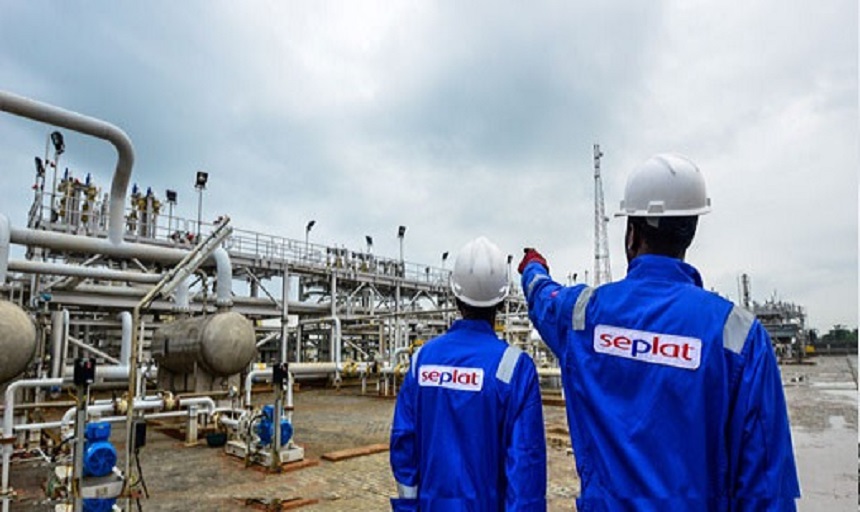Economy
Why Seplat Sacked Avuru as Non-Executive Director

The investing public may not have heard details of the main reasons why Austin Avuru, a former chief executive officer of Seplat Energy Plc who later became a Non-Executive Director was sacked from the board of the energy company.
Seplat Energy Plc had on Thursday, December 23 notified the Nigerian Exchange Limited (NGX) that its board has terminated the contract of appointment of Austin Avuru as a Non-Executive Director.
Seplat Energy told the NGX that Avuru’s appointment was terminated on December 22, 2021, “due to breaches of the Company’s corporate governance policies and his fiduciary duties.”
Shortly after SEPLAT hammer fell on Avuru, Perchstone & Graeys, the law firm representing the sacked Non-Executive Director said the allegations levelled against him (Avuru) by Seplat Energy Plc were aimed at “damaging his hard-earned reputation” based on “fictitious allegations” even though the same statement accepted that their client (Austin Avuru) had taken “an ill-advised action”.
The law firm had said this in a statement issued last week and signed by Osaro Eghobamien and Folabi Kuti, its lawyers.
However, the emerging facts seem to bear serious consequences.
Under the Companies and Allied Matters Act, 2020 (CAMA), directors have a duty to exercise their powers and discharge their duties honestly, in good faith and in the best interests of the company. They are also expected to exercise that degree of care, diligence and skill which a reasonably prudent director would exercise in comparable circumstances.
It was learnt that following an enquiry by the Board of Directors of SEPLAT, Avuru had allegedly on December 1, 2020, admitted his conflict of interest in connection with SEPLAT’s business and more particularly its proposed acquisition of some Nigerian assets in which ExxonMobil Corporation has interests.
Avuru also admitted that he had on that date been appointed the Chairman of Chappal Petroleum Development Company Limited (Chappal) and that Chappal had been invited by ExxonMobil Corporation for discussions and possible access to their database in respect of the assets.
Further enquiries by SEPLAT Board revealed that Avuru had already acquired an interest in Chappal over nine months earlier, as far back as March 2020, whilst he was still CEO of Seplat Energy.
More revealing was that the incorporation documents of Chappal as shown at the Corporate Affairs Commission (CAC) revealed that Avuru was and remained both a founding shareholder and director of Chappal, but he failed to disclose his interests in Chappal to the Board in December 2020.
It was further learnt that prior to December 1, 2020, Avuru was much aware, but failed to disclose that Chappal had put in a bid for the said oil and gas assets.
SEPLAT Board after completing the process of its review was satisfied that Avuru failed or refused to disclose a conflict of interest as soon as he acquired an interest in and was appointed a director of Chappal and became aware that Chappal was bidding for the assets.
Avuru knew that SEPLAT which he was a Non-Executive Director was also interested in the assets and he had participated in SEPLAT’s Board discussions relating to SEPLAT’S bid for the assets.
These findings seemed to have affirmed for Board of SEPLAT that Avuru by his actions clearly breached his fiduciary duties and obligations as a director as stipulated under the existing Nigerian Code of Corporate Governance (NCCG) as well as the Securities and Exchange Commission (SEC) Code of Corporate Governance to which Avuru’s appointment was subject.
Avuru as then Non-Executive Director had a duty to notify SEPLAT of his appointment onto the board of Chappal, bearing in mind that he was the CEO of SEPLAT at the time and both companies operate within the same industry.
SEPLAT Energy has a standard listing on the Main Market of the London Stock Exchange (LSE), therefore the company is publicly committed to comply voluntarily with and to abide by the United Kingdom’s Code of Corporate Governance (UK Code).
In accordance with the UK Code provisions, Board directors are not only expected to act in a manner consistent with their duties under company law, but also to uphold the highest standards of integrity.
Prior to appointment into the Board, directors are expected to disclose their significant commitments to the board (together with an indication of the time involved) and additional external appointments are not to be undertaken by directors without prior approval of the board.
By not notifying the SEPLAT board of his appointment to the board of Chappal in March 2020, at a time when Avuru was the CEO of SEPLAT, and not seeking prior approval from the SEPLAT board to take on this new appointment, Avuru acted in a manner that was inconsistent with the provisions of the UK Code and the guidance.
It was further learnt that Avuru also failed to disclose his appointment as a director of Chappal when he accepted the role of a Non-Executive Director (NED) of SEPLAT.
No doubt, prompt and timely disclosure of this board appointment was particularly key in allowing SEPLAT Board to assess the risk of any conflict of interest arising and to take appropriate measures to manage a potential conflict.
Considering the statutory requirement from directors, Avuru had a duty to exercise good faith and a reasonable degree of care and prudence in how Avuru handled the potential conflict.
He failed to exercise his duty of care to SEPLAT by being forthright in disclosing the conflict or likelihood of conflict of interest to SEPLAT, before or promoting/ incorporating Chappal in March 2020.
By failing to promptly disclose his directorship in Chappal, Avuru placed himself in a position where his duties as a director of SEPLAT conflicted with the concurrent opportunities he pursued as founding shareholder and director of Chappal and SEPLAT in a position where it was temporarily unable to take prompt action to manage the potential conflict of interest and to comply with the provisions of CAMA as well as the principles of the NCCG, SEC and UK codes.
For almost one year, Avuru’s attention was said to have been fully with Chappal as against SEPLAT, a situation that was most unfair to SEPLAT, its shareholders and other stakeholders.
Economy
LIRS Shifts Deadline for Annual Returns Filing to February 7

By Aduragbemi Omiyale
The deadline for filing of employers’ annual tax returns in Lagos State has been extended by one week from February 1 to 7, 2026.
This information was revealed in a statement signed by the Head of Corporate Communications of the Lagos State Internal Revenue Service (LIRS), Mrs Monsurat Amasa-Oyelude.
In the statement issued over the weekend, the chairman of the tax collecting organisation, Mr Ayodele Subair, explained that the statutory deadline for filing of employers’ annual tax returns is January 31, every year, noting that the extension is intended to provide employers with additional time to complete and submit accurate tax returns.
According to him, employers must give priority to the timely filing of their annual returns, noting that compliance should be embedded as a routine business practice.
He also reiterated that electronic filing through the LIRS eTax platform remains the only approved method for submitting annual returns, as manual filings have been completely phased out. Employers are therefore required to file their returns exclusively through the LIRS eTax portal: https://etax.lirs.net.
Describing the platform as secure, user-friendly, and accessible 24/7, Mr Subair advised employers to ensure that the Tax ID (Tax Identification Number) of all employees is correctly captured in their submissions.
Economy
Airtel on Track to List Mobile Money Unit in First Half of 2026—Taldar

By Adedapo Adesanya
The chief executive of Airtel Africa Plc, Mr Sunil Kumar Taldar, has disclosed that the company is still on track to list its mobile money business, Airtel Money, before the end of June 2026.
Recall that Business Post reported in March 2024 that the mobile network operator was considering selling the shares of Airtel Money to the public through the IPO vehicle in a transaction expected to raise about $4 billion.
The firm had been in talks with possible advisors for a planned listing of the shares from the initial public offer on a stock exchange with some options including London, the United Arab Emirates (UAE), or Europe.
However, so far no final decisions have been made regarding the timing, location, or scale of the IPO.
In September 2025, the telco reportedly picked Citigroup Incorporated as advisors for the planned IPO which will see Airtel Money become a standalone entity before it can attain the prestige of trading on a stock exchange.
Mr Taldar, noted that metrics continued to show improvements ahead of the listing with its customer base hitting 52 million, compared to around 44.6 million users it had as of June 2025.
He added that the subsidiary processed over $210 billion in a year, according to the company’s nine-month financial results released on Friday.
“Our push to enhance financial inclusion across the continent continues to gain momentum with our Mobile Money customer base expanding to 52 million, surpassing the 50 million milestone. Annualised total processed value of over $210 billion in Q3’26 underscores the depth of our merchants, agents, and partner ecosystem and remains a key player in driving improved access to financial services across Africa.
“We remain on track for the listing of Airtel Money in the first half of 2026,” Mr Taldar said.
Estimating Airtel Money at $4 billion is higher than its valuation of $2.65 billion in 2021. In 2021, Airtel Money received significant investments, including $200 million from TPG Incorporated at a valuation of $2.65 billion and $100 million from Mastercard. Later that same year, an affiliate of Qatar’s sovereign wealth fund also acquired an undisclosed stake in the unit.
The mobile money sector in Africa is expanding rapidly, driven by a young population increasingly adopting technology for financial services, making the continent a key market for fintech companies.
Economy
Crypto Investor Bamu Gift Wandji of Polyfarm in EFCC Custody

By Dipo Olowookere
A cryptocurrency investor and owner of Polyfarm, Mr Bamu Gift Wandji, is currently cooling off in the custody of the Economic and Financial Crimes Commission (EFCC).
He was handed over to the anti-money laundering agency by the Nigerian Security and Civil Defence Corps (NSCDC) on Friday, January 30, 2026, after his arrest on Monday, January 12, 2026.
A statement from the EFCC yesterday disclosed that the suspect was apprehended by the NSCDC in Gwagwalada, Abuja for running an investment scheme without the authorisation of the Securities and Exchange Commission (SEC), which is the apex capital market regulator in Nigeria.
It was claimed that Mr Wandji created a fraudulent crypto investment platform called Polyfarm, where he allegedly lured innocent Nigerians to invest in Polygon, a crypto token that attracts high returns.
Investigation further revealed that he also deceived the public that his project, Polyfarm, has its native token called “polyfarm coin” which he sold to the public.
In his bid to promote the scheme, the suspect posted about this on social media platforms, including WhatsApp, X (formally Twitter) and Telegram. He also conducted seminars in some major cities in Nigeria including Kaduna, Lagos, Port Harcourt and Abuja where he described the scheme as a life-changing programme.
Further investigation revealed that in October, 2025, subscribers who could not access their funds were informed by the suspect that the site was attacked by Lazarus group, a cyber attacking group linked to North Korea.
Further investigations showed that Polyfarm is not registered and not licensed with SEC to carry out crypto transactions in Nigeria. Also, no investment happened with subscribers’ funds and that the suspect used funds paid by subscribers to pay others in the name of profit.
Investigation also revealed that native coin, polyfarm coin was never listed on coin market cap and that the suspect sold worthless coins to the general public.
Contrary to the claim of the suspect that his platform was attacked, EFCC’s investigations revealed that the platform was never attacked or hacked by anyone and that the suspect withdrew investors’ funds and utilized the same for his personal gains.
The EFCC, in the statement, disclosed that Mr Wandji would be charged to court upon conclusion of investigations.
-

 Feature/OPED6 years ago
Feature/OPED6 years agoDavos was Different this year
-
Travel/Tourism9 years ago
Lagos Seals Western Lodge Hotel In Ikorodu
-

 Showbiz3 years ago
Showbiz3 years agoEstranged Lover Releases Videos of Empress Njamah Bathing
-

 Banking8 years ago
Banking8 years agoSort Codes of GTBank Branches in Nigeria
-

 Economy3 years ago
Economy3 years agoSubsidy Removal: CNG at N130 Per Litre Cheaper Than Petrol—IPMAN
-

 Banking3 years ago
Banking3 years agoSort Codes of UBA Branches in Nigeria
-

 Banking3 years ago
Banking3 years agoFirst Bank Announces Planned Downtime
-

 Sports3 years ago
Sports3 years agoHighest Paid Nigerian Footballer – How Much Do Nigerian Footballers Earn
















4 Comments